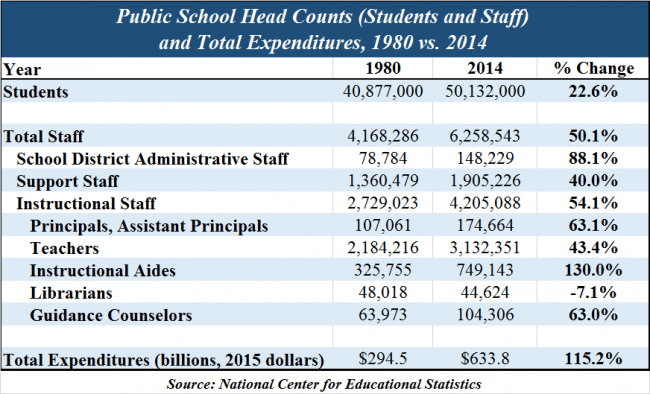Here is the Wikipedia definition of a Pigovian tax:
A Pigovian tax (also spelled Pigouvian tax) is a tax levied on any market activity that generates negative externalities (costs not internalized in the market price). The tax is intended to correct an inefficient market outcome, and does so by being set equal to the social cost of the negative externalities. In the presence of negative externalities, the social cost of a market activity is not covered by the private cost of the activity. In such a case, the market outcome is not efficient and may lead to over-consumption of the product.[1] An often-cited example of such an externality is environmental pollution.
The Left often tries to justify new taxes based on their being Pigovian taxes. The classic example is a carbon tax -- it is claimed there is a social cost to carbon-based fuel combustion (e.g. CO2 production and resulting global warming) that is not taken into account by market prices. By adding the tax, these other costs can be taken into account, likely raising the price of these fuels and thus both reducing their use and providing a higher price umbrella for alternatives.
For years, I accepted these arguments at face value. I might argue with them (for example, I think that the Left has tended to spot 10 of the last 2 true negative externalities), but I accepted that they really believed in the logic of the Pigovian tax. I am now becoming convinced that I was wrong, that the Left's support of Pigovian taxes is frequently a front, a way of putting a more palatable face on what is really a naked grab for more taxpayer money by public officials. To support this emerging hypothesis, I cite two examples.
1. Proposed Carbon Tax in Washington State
This last November, a carbon tax was placed on the ballot in Washington State. In many ways, it partially mirrored my own proposal (here) by making the tax revenue neutral, ie the new carbon tax was offset by a reduction in other regressive taxes, particularly other consumption taxes. If the Left and environmental groups truly embraced the Pigovian logic of a carbon tax, they should have jumped at supporting this initiative. I discuss what happened in depth here but Vox has a good summary:
The measure, called Initiative 732, isn’t just any carbon tax, either. It’s a big one. It would be the first carbon tax in the US, the biggest in North America, and one of the most ambitious in the world.
And yet the left opposes it. The Democratic Party, community-of-color groups, organized labor, big liberal donors, and even most big environmental groups have come out against it.
Why on Earth would the left oppose the first and biggest carbon tax in the country? How has the climate community in Washington ended up in what one participant calls a "train wreck"? (Others have described it in more, er, colorful terms.)....
the alliance’s core objection to I-732 is that it is revenue-neutral — it surrenders all that precious revenue, which is so hard to come by in Washington. That, more than anything else, explains why alliance groups are not supporting it.
Opponents say they wanted to use the revenue for climate-related investments, but even if true there are two things wrong with this. First, it shows ignorance of the economic theory of the Pigovian tax -- the whole point is that by raising the price of carbon-based fuels, markets will find the most efficient way to reduce this fuel use. The whole point is that it is way more efficient to reduce CO2 production through this simple pricing mechanism than it is through government cronyist winner-picking "investments". The second problem is that such promises of funds dedication never last. Supposedly the tobacco settlement was all supposed to go to health care and tobacco-related education, but there is not a single state where even a double digit percentage went to these things (the American Lung Association estimates just 2% of the funds go to the original purpose). In New York, the entire tobacco settlement stream was securitized and used to plug a single year's general budget hole. You can be assured the same thing would happen with carbon tax revenue.
2. Soda Tax in Philadelphia
Last year, Philadelphia passed a large soda tax. The justification for such a tax is that such drinks cause obesity and other health issues. Either for people's own good or to reduce the future burden on government health care programs, the whole point of such a tax is to reduce soda consumption. Or so it was justified.
But now, once the tax took effect, the city government that passed the tax seems to be shocked and surprised that soda consumption is way down. You would think that they would be declaring victory, ... that is, if the point was ever to reduce soda consumption and not just to raise some extra revenue. Via Reason:
For now, Kenney and other city officials seem unfazed—dismissive, even—of the problems caused by the new tax. A city spokesman told Philly.com that no one knows whether low sales figures and predicted job losses are anything more than "fear-mongering to prevent this from happening in other cities."
Kenney put an even finer point on it.
"I didn't think it was possible for the soda industry to be any greedier," Kenney said in an emailed statement to Philly.com reporter Julia Terruso. "They are so committed to stopping this tax from spreading to other cities, that they are not only passing the tax they should be paying onto their customer, they are actually willing to threaten working men and women's jobs rather than marginally reduce their seven figure bonuses."
It's not the first time Kenney has tried to ignore basic economics when it comes to the soda tax. A few weeks ago, he blamed grocery stores and restaurants for "price gouging" when they increased prices for sugary drinks to make consumers pay for the cost of the tax (the tax is technically applied on the transaction between distributors and retailers, but, like all other taxes, it gets passed along).
Its clear that this tax justified as a pigovian tax is really no such thing. City officials seem to be honestly surprised that consumption is down as the result of a Pigovian tax whose purpose is to... reduce consumption. And if they really did not expect the tax to get passed on to consumers, then how does it work? In fact, city officials are actually worried that reductions in soda consumption is going to cause the tax to yield less money than they expected, creating a hole in their budgets.
* * *
Going forward, I plan to apply an order of magnitude more skepticism to any future calls for Pigovian taxes. I think the first thing I will ask of each new suggestion is "do you still support this tax if I were to make it revenue neutral, say by offsetting it with reductions in another regressive taxes?"




